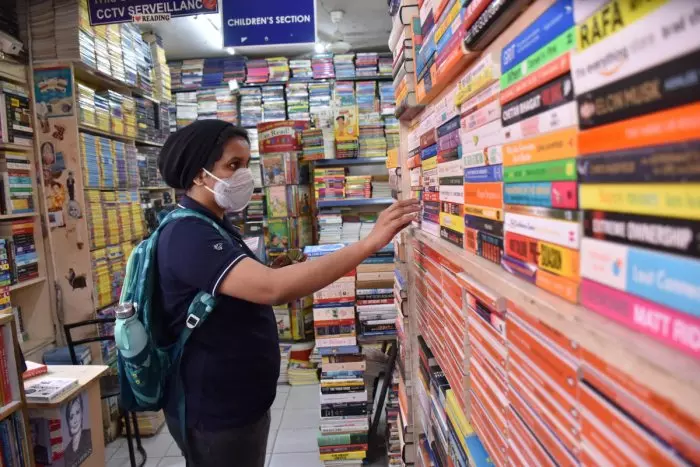
More than winding up a publishing house
text_fieldsIt has been a long time since the forebodings about death knells of the printed word started being heard. It came with the perception that with the advent of new media and new technologies of book reading, there would be no room for printed magazines and books. However, with the emergence of online portals, round the clock news channels and podcasts, newspapers were not entirely given up. Although audio books that can be listened to at home are widely available and a travel companion for many, readers still have the fascination of their eyes traversing pages together with the spirit of the composition. A clear illustration of this is the resurgence of book fairs which were for a time stalled. This however cannot be said to be a lasting feature. The credibility and acceptance of the print media notwithstanding, many of them are on the wane. Many leading newspapers stopped publishing. Scores of small-time publishers stop publishing because they cannot afford the rising cost of printing ink and paper. The global financial crisis created by Covid became an added burden. The lifeblood of some small publishing houses has come to a standstill, being unable to compete with the giants in the industry.
But it would dismay anyone who loves letters and respects differences of opinion when a book publishing house to which these factors do not apply, announces its closure all of a sudden. Knowing that Westland Books is no more, the surprise turns into anxiety when the managers are not ready to explain its exit with sufficient reasons. Westland was not a publishing house run by a voluntary organization or by a poor lover of letters with his accumulated PF contribution and well-earned pension. The company's current owners are Amazon, a global retail giant that controls a significant portion of the market in India, as well as in other parts of the world. Founded in 1962 by KS Padmanabhan, East West Books was acquired by Amazon Westland Books in 2016 from Trent Limited, a subsidiary of Tatas. Many of the titles published by the firm, which did justice to its readers and writers, were the shining stars in the darkness of fear and totalitarianism. Each new book was published as a bold political act at a time when even the watchdogs of the media – once known for their bravery and barking - were huddled in front of the government like puppies in their master's lap.
When a publisher that has given to the world such virulent titles as Revathi Lol's 'The Anatomy of Hate', M. Rajshekhar's 'Despite the State', Christophe Jaffrelot's 'Modis India: Hindu Nationalism and the Rise of Ethnic Democracy', Josy Joseph's 'The Silent Coup', Arvind Narrain's 'India's Undeclared Emergency: Constitutionalism and the Politics of Resistance' and Nalin Mehta's 'The New BJP', leaves the scene, it is by no means a good augury. Many of these are likely to become alien to readers later as long-term copyright rests with publishers. And leading publishers, which have degenerated to the level of sangh parivar's publishing arm, are not likely to come forward to publish such works.
For a retailer like Amazon, books- no matter how worthy they may be - are just a commodity. Such merchants may even be willing to sacrifice the bookstore to get over any restrictions that may be imposed on online commerce, such as Facebook's playing to the tunes of merchants of hate in order to boost sales. But for writers, readers and the Indian people, it is like paying a fine. As the title of the book by civil rights activist Aakar Patel published by Westland suggests, 'Price of the Modi Years'! The penalty imposed on the world's largest democracy for the rule of by dictatorship.

















